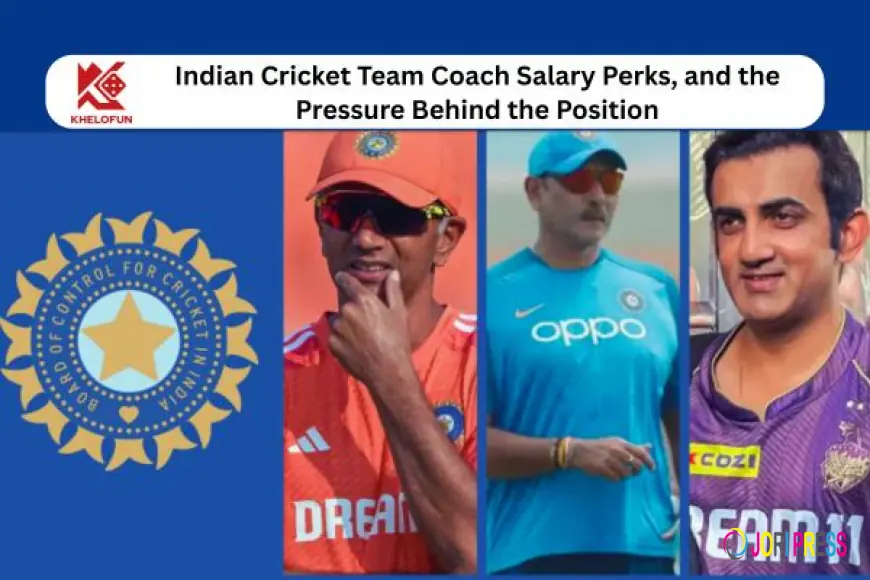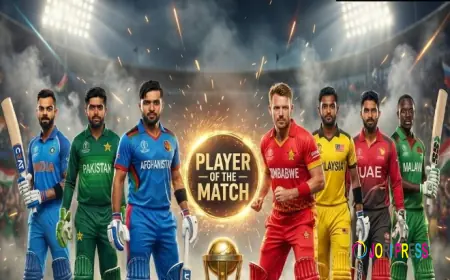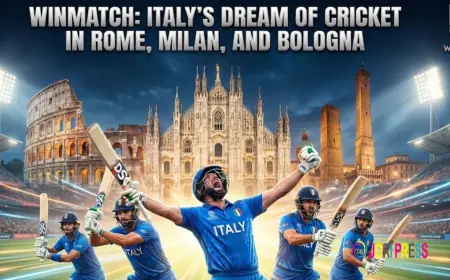Khelofun Explains Indian Cricket Team Coach Salary Perks Negotiation and Contract Length

Every successful cricket team has a strategic mind behind the coach playing a wide role. The role of a coach in Indian cricket carries with it the responsibility and the expectations of an entire nation. As fans celebrate player achievements and records, there is also the aspect of the Indian cricket team coach salary. And more living in the background like how he was appointed, how he was selected, what perks to his income, and the duration of his contract. The profile of a coach moves parallel to the sport itself, dynamic and without quick or clear conclusion.
Significance of the Head Coach Role
For the Indian team, the head coach is not only someone who can guide the skills and activities of players on and off the pitch. The head coach is a planner, a motivator, a strategist and so much more.
Duties of the head coach include:
-
To develop team strategies, plans, and code of play for all formats
-
To manage player workloads and fitness
-
To engage with player support staff on skills training and enhancement
-
To create and maintain a strong team culture and mental discipline
All of these responsibilities would normally consist of a long list of tasks each day, upon which it would be easy to see why the Indian cricket team coach salary would be among the highest cricket coaches in the world. A coach works long hours, is constantly travelling around the globe, is always in the spotlight of scrutiny, and is constantly working towards outcomes that adhere to an expected standard - these all add to worth that when paid would lead to a substantial package.
How Much Does the Indian Coach Earn?
Based on sources and official sources, the salary for an Indian cricket team head coach in India can be ₹7 crore to ₹10 crore every year, depending on prior experience, coaching standards, and any negotiated outcome.
For instance,
-
Rahul Dravid, who was appointed head coach of the Indian cricket team after Ravi Shastri, was reportedly offered a contract in the ₹9–10 crore annual range.
-
Ravi Shastri reportedly had an annual salary of approximately ₹8.5 crore during his coaching tenure with the team.
Based on these amounts, it is clear that the Indian cricket team head coach salary can be described as some of the most well-paid coach salaries in cricket on a global scale. These salaries reflect the nature of the contract and the associated expectations of performance, tournament outcomes, and some measure of building a strong pipeline of possible players for the future.
What Determines the Salary Range
The Indian cricket team coach really does not have a fixed coaching salary. The salary depends on these factors and include:
-
Experience and Reputation: Coaches who have impressive international records as coaches or franchises or national teams can negotiate higher coaching packages.
-
Team Performance: A coach's contract extension is often a performance review and will assess evolving compensation.
-
BCCI's Budget and Policy: The Board of Control for Cricket in India (BCCI) refreshes the entire pay scale every few years based on finances, sponsorships, and international commitments.
-
Format Coverage: Coaches who service all three formats (Tests, ODIs, T20s) are compensated at higher salaries than if they simply focused on one or two formats.
Perks Beyond the Paycheck
The financial package is not just limited to salary. The head coach and principal support staff receive a suite of additional benefits.
Key benefits include:
-
Business-class Travel: All international and domestic travel is covered.
-
Accommodation: Accommodations at luxurious hotels during series, camps, and official tours.
-
Allowances: Daily allowances for meals, logistics, and costs of living during tours.
-
Medical and Travel Insurance: Comprehensive medical and travel insurance with family coverage in many instances.
-
Performance bonuses: After tournament wins or notable accomplishments, i.e., wins in series overseas or otherwise.
Although the money is great, the workload and pressure are equally challenging. There are expectations 24/7 related to managing one of the most followed cricket teams in the world.
Contract Duration and Renewal Process
Typically, Indian team coach contracts are for two to three years, but may vary, depending on the decision of the board.
Most contracts follow the timeline of major ICC tournaments, i.e., the World Cup or Champions Trophy cycle.
The renewal process Includes:
-
Performance review: The BCCI will evaluate match outcomes, team development, and harmonious dressing room environment.
-
Negotiation stage: The coach and BCCI will discuss possibilities of extension, salary changes, and variations in workload or pressure.
-
Committee approval: The Cricket Advisory Committee's recommendation or action for approval of inquiry until a decision is reached.
The Negotiation Game: How the Salary Is Finalized
Negotiating the salary of a head coach is as much of a strategy as a contest on the field. The Board of Control for Cricket in India (BCCI) typically starts with negotiations around in-house pay scales defined internally, but if a name coach is involved, then we will not hesitate to floor that at the same time.
A few examples:
-
A coach with some IPL experience, or recognizable international experience, can expect to command a top tier salary.
-
Recruiting former players of note (say, Dravid or Shastri), typically opens a strong possibility that they might demand a more favourable deal knowing that their legacy and results will affect potential negotiations.
Additionally, market forces play a factor, knowing that if aspiring coaches seek a chance internationally, then the BCCI would want to ensure they offered remuneration for the Indian coach role to align with global competition.
Comparison with Other Nations
On an international scale, the salary for an Indian cricket team coach remains one of the most lucrative.
Here is a quick snapshot comparison (estimates only):
-
India: ₹9-10 crore per annum
-
Australia: ₹3-4 crore per annum
-
England: ₹4-5 crore per annum
-
Pakistan: ₹1.5-2 crore per annum
These figures are a clear demonstration of India's financial strength in world cricket and the Board's willingness to invest in the best talent for its team.
Also, the coach's role in India is broader than the national team. The coach collaborates with domestic setups, A-team coaches, and the National Cricket Academy (NCA) to create a sense of continuity through the creation of a player development group looking towards the future.
Challenges That Come with the Pay
Although the salary and benefits are generous, the demands are unrelenting. After every series, selection, and loss, the debate around them is national. The Indian coach works in a pressured environment surrounded by the media, constant travel, and tight schedules.
Managing senior players while also developing young players requires a degree of diplomacy and experience. Defending your players from external criticism while keeping their confidence up is just as vital as being a coach technically.
Future Outlook for Coaching Contracts
With the evolution of modern cricket, there is the possibility the BCCI may adopt roles that involve coaching specialities like a coach for the red-ball team and another for the white-ball team. This could switch the salary and contract structure from general assignments to performance-specific positions.
As younger players come through and technology reinforces training, the role of the coach will continue to develop. Mentorship, mental conditioning and depth of analysis will eventually become as important as strategic programming.
Final Thoughts
The Indian cricket team coach salary is indicative of the massive pressure and expectations that are associated with being the leader of one of the most revered cricketing nations in the world. This is not merely a profession; this is a position of trust, responsibility, and national acclaim.
The board conveys another message of what excellence in coaching is worth when they negotiate a new contract. In each professional setting, whether at the negotiating table or in the changing room, the balance between leadership and results is always the balancing act.
As Khelofun noted, knowing what goes on behind the scorecard — in contracts, decision-making, and leadership — gives fans a better idea of how India continues to pursue cricketing excellence both on and off the field.
What's Your Reaction?
 Like
0
Like
0
 Dislike
0
Dislike
0
 Love
0
Love
0
 Funny
0
Funny
0
 Angry
0
Angry
0
 Sad
0
Sad
0
 Wow
0
Wow
0


















































